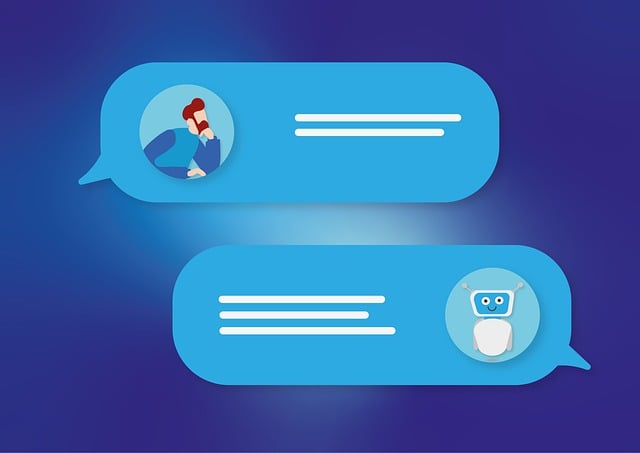AI chatbots are revolutionizing online customer support by leveraging NLP for instant, personalized 24/7 assistance. They handle simple to complex queries, freeing human agents to focus on intricate issues, enhancing efficiency and resource allocation. Businesses can gather valuable data for improved strategies and increased satisfaction. However, implementing AI chatbots requires strategic planning, clear objectives, diverse training data, and balancing automated responses with human intervention. The future holds promise with advancements in NLP and machine learning, aiming to create sophisticated conversational agents that proactively anticipate user needs.
AI chatbots are transforming online support, offering instant assistance and personalized interactions. This article delves into the world of AI chatbots for customer support, exploring their role, benefits, and potential. We discuss strategies for successful implementation, addressing common challenges faced by businesses adopting this technology. Furthermore, we analyze future trends shaping the evolution of AI chatbots in online support, providing insights into their burgeoning impact. Discover how these virtual assistants are revolutionizing customer interactions.
- Understanding AI Chatbots for Support: Their Role and Benefits
- Implementing AI Chatbots: Strategies for Success and Common Challenges
- The Future of AI Chatbots in Online Support: Trends to Watch
Understanding AI Chatbots for Support: Their Role and Benefits

AI chatbots have emerged as powerful tools for online support, revolutionizing customer service and enhancing user experiences. These intelligent virtual assistants leverage natural language processing (NLP) technology to interact with users in a conversational manner, providing instant and personalized assistance. By understanding user queries, they offer tailored solutions, route requests to relevant departments, or even resolve common issues without human intervention.
The role of AI chatbots for support is vast and beneficial. They are available 24/7, ensuring immediate responses to customer inquiries, which can significantly reduce wait times. Moreover, these chatbots can handle a high volume of simple to moderately complex queries, allowing human agents to focus on more intricate or sensitive issues. This not only improves efficiency but also leads to better resource allocation and cost savings for businesses. AI chatbots also collect valuable data during interactions, enabling companies to gain insights into customer preferences and pain points, which can be used to refine support strategies and improve overall satisfaction.
Implementing AI Chatbots: Strategies for Success and Common Challenges

Implementing AI chatbots, also known as artificial intelligence-powered virtual assistants, can significantly enhance customer support and service for businesses. The key to success lies in strategic planning and understanding user needs. When integrating AI chatbots online, companies should first define clear objectives, such as improving response times or handling a high volume of simple queries. This involves mapping out the types of customer interactions and designing chatbot workflows accordingly.
While the benefits are substantial, there are common challenges to navigate. One significant hurdle is creating accurate and diverse training data to teach the AI chatbot effective conversational skills. Inaccurate or biased data can lead to poor user experiences and misunderstandings. Additionally, maintaining a balance between automated responses and human intervention is crucial; chatbots should escalate complex issues to human agents, ensuring no customer query goes unresolved.
The Future of AI Chatbots in Online Support: Trends to Watch

The future of AI chatbots in online support is looking increasingly promising, with rapid advancements in natural language processing and machine learning technologies. These virtual assistants are set to become even more sophisticated, offering personalized interactions and understanding user needs at unprecedented levels. Trends suggest that ai chatbots will evolve from simple question-answering systems into complex, context-aware conversational agents.
Expect to see improved integration with existing customer support platforms, seamless handovers between human agents and AI, and enhanced data analytics for better decision-making. As AI chatbots learn from interactions, they’ll be able to anticipate user needs, offer proactive solutions, and provide a more efficient, engaging, and accessible online support experience.
AI chatbots are transforming online support, offering round-the-clock assistance and enhancing customer experiences. By understanding their role, implementing effective strategies, and staying informed about future trends, businesses can harness the power of AI chatbots to provide efficient, personalized, and accessible support. As these technologies evolve, ai chatbots online will continue to play a pivotal role in shaping the future of customer interactions.
